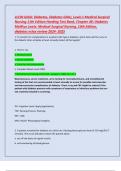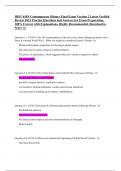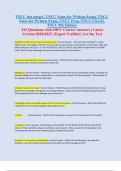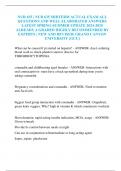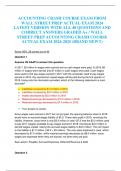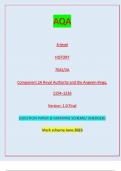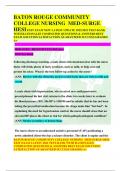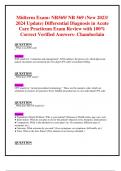Exam (elaborations)
LCCW GIGU: Diabetes, Diabetes GIGU, Lewis's Medical Surgical Nursing 11th Edition Harding Test Bank, Chapter 48: Diabetes Mellitus Lewis: Medical-Surgical Nursing, 10th Edition, diabetes nclex review
- Course
- Institution
LCCW GIGU: Diabetes, Diabetes GIGU, Lewis's Medical Surgical Nursing 11th Edition Harding Test Bank, Chapter 48: Diabetes Mellitus Lewis: Medical-Surgical Nursing, 10th Edition, diabetes nclex review
[Show more]
